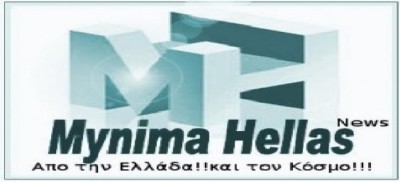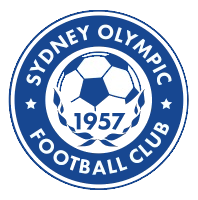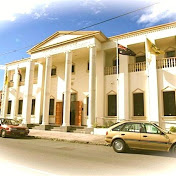In 1970, former Australian national team manager Rale Rasic was told by Ferenc Puskas – who was then coach of Panathinaikos – that his coaching methods were ‘crazy’ before a friendly against Greece
It’s 44 years ago this week that the Socceroos qualified for the 1974 World Cup in Germany – the first time Australia had made it to football’s showpiece event. Preparations for the rigorous qualification process started three years earlier, when Australia as a fledgling football country under Rale Rasic embarked on a world tour of Asia, South America and Europe.
Neos Kosmos ventured to the Australian Football Museum, otherwise known as Rale Rasic’s house, to hear how this trip that featured a friendly match against Greece contributed to Australia securing World Cup qualification in 1973.
Rasic’s home in Cecil Park, Western Sydney, features two rooms of football memorabilia that tells not only of the history of Australian football but also the world as it once was. The walls are adorned by rarities such as a signed football jersey by Brazil legend Pele, drawings by Greek Australian artist Tony Rafty, and pennants and gifts that Rasic has collected for over 60 years.
Amongst the numerous rare items, the 81-year-old has a black and white photo of legendary Greek player Mimis Domazos from when Australia played Greece in 1970. The attacking midfielder played over 500 games for Panathinaikos as well as 50 caps for the Greek national team and Rasic beams when he tells the story of his time in Greece.
“Domazos is one of greatest players in the history of Greek football,” says Rasic.
“So, Greek football was on the way up at this time and Lakis Petropoulos was the coach [of the national team]. Greece had all these big names in their team. There was Domazos as well as Kostas Eleftherakis, Mimis Papaioannou, Sotiris Aggelopoulos, Takis Ikonomopoulos, Aristidis Kamaras, and Giorgos Dedes.”
The Socceroos were in Greece at the same time as legendary football player Ferenc Puskas who oversaw Panathinaikos and Rasic says the Hungarian made a big impact on Greek football during this period.
“That was the year he took Panathinaikos to the European Cup final,” Rasic says.
“He was so famous then and along with Yugoslav coach Stjepan Bobek they were unbelievable figureheads for Greek football.
“When Australia played Greece in 1970 the Greeks were undefeated on home soil for three years due to the influence of Puskas and Bobek and many other Yugoslav coaches like Kiril “Džina” Simonovski, Béla Pálfi and many others who were working in Greece.
“You cannot believe how big Bobek was in the eyes of the people in Greece. Then can you even imagine Ferenc Puskas? I mean a world commodity player – we will never see a player that is a goal scorer like that again.”
Before the friendly with Greece, Australia trained on Panathinaikos’ home ground and it was here that Rasic describes his unique encounter with the galloping major.
“Who else but Puskas saw us training,” he says. “He made a comment to our physiotherapist that I was crazy because we were training the team quite hard before we played the friendly match against Greece. Puskas asked our physio, “why are you training so hard the day before the match?”
After training, the Socceroos were given the opportunity to see some of the country’s most famous landmarks and Rasic says the hospitality shown by the Hellenic Football Federation was something he will never forget.
“So many Greeks were saying to us that they couldn’t lose because they supported one team or the other,” he says.
“In terms of emotion, Greeks feel strongly for Australia because, so many Greeks live here. It was just an incredible feeling.
“The Ministry of Sport took us out for dinner at the Parthenon. That is very, very unusual. The hospitality that we were shown at the Acropolis was just out of this world and so were the gifts. It was to my way of thinking, for us a learning curve. To see how to show hospitality, how to welcome someone from other countries and create international relationships. Because football is a major link between cultures.”
The actual game saw Australia come away with a 3-1 win with goals by Adrian Alston, George Blues and Mike Denton but this time the Hungarian legend had a different view of Rasic’s tactics.
“When we beat Greece 3-1 in Athens, our physio saw Ferenc Puskas leaving the stadium, he had left his gear and when he saw him on the pitch he ran to Puskas and said, “is the coach still crazy?” he answered
“No,” Rasic laughed and added, “I had the privilege of meeting Ferenc Puskas many times after then.”
After the game, Greek coach Petropoulos said to the local press that the Australians were comparable to countries like Belgium and Czechoslovakia and upon hearing this Rasic says he was blown away.
“That was unheard of,” he says.
“To hear Petropoulos say to the media, that we were a mid-European class team – to us, as semi-pros, it was an incredible compliment, “he says.
“The compliments from Petropoulos were phenomenal. He also said that Australian striker Jimmy MacKay is a European-class player. Jimmy MacKay’s name was never mentioned here in Australia at that time.
“Players like Adrian Alston were marching towards success and recognition. Alston was six foot one, a striker with superb technique and was also mentioned. Discipline in defence was mentioned as well as the team’s organisation. And this was by Europeans; it’s just incredible.”
“Secondly, winning the match against a country like Greece with players like Papaioannou, Domazos, and Ikonomopoulos who were known throughout Europe – was amazing.”
Even though Greece had lost to the Socceroos in front of their own crowd, Rasic recalled that after the match a large contingent of Greek fans came to celebrate with the Australians.
“That is really something,” he says. “When we arrived at the hotel, I’ve never seen a celebration like it. Probably 3,000 Greeks were hanging around our hotel. The celebration kept on going after midnight.
“They came to share feelings of friendship. As I said earlier with so many Greeks living in Australia they couldn’t lose. There were lots of ‘yassou’ (how are you?) and, “we support two countries.” I said to the boys, sport is the greatest link you could ever, ever find to patch up all the differences in politics and it can happen through football. It’s an amazing story.
“Since then, I became very close friends with the late Sotiri Aggelopoulos as well as Antonis Antoniadis, another famous Greek player, and every time I went to Greece I saw them. Antoniadis also came to Australia with Olympiakos in 1978. You create friendships in football which are life lasting. These are such unbelievable memories.”
When Australia played Greece in Sydney last year, Football Federation Australia invited Rasic along with Greek Australian Socceroos such as Peter Katholos, Chris Kalantzis, Jim Patikas and Peter Raskopoulos to a reception before the game.
Rasic says he felt a sense of gratitude that his prior achievement against Greece was noted.
“Before kick-off I was also given a scarf by a representative of the Greek team,” Rasic says.
“Then I was introduced to the crowd. The feeling of the recognition of the past and the joining of the present together – was really and truly, incredible.”
Source: Neos Kosmos












